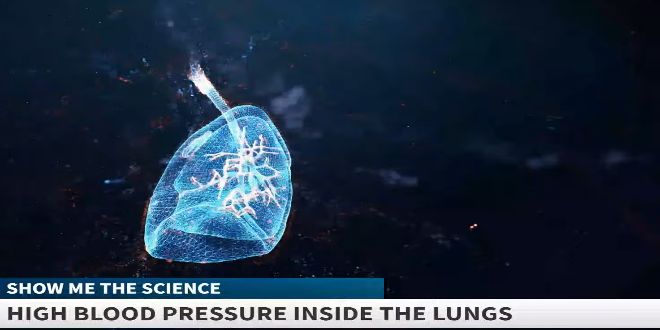Hypertension, or high blood pressure, is a medical condition that often doesn’t present clear symptoms initially. However, despite the absence of apparent symptoms, hypertension can be a serious precursor to various long-term health issues, including heart disease, stroke, and organ damage. Therefore, it’s crucial to recognize symptoms associated with hypertension in order to take appropriate preventive measures and manage the condition effectively.
Symptoms Associated with Hypertension: Understanding Warning Signs
Here are some symptoms that may be associated with hypertension:
- Headaches: One of the most common symptoms associated with hypertension is headaches, especially in the back of the head. These headaches may feel like pressure or pulsating, and often occur in the morning.
- Dizziness or Lightheadedness: Hypertension can also cause feelings of dizziness or lightheadedness that persist. This may be accompanied by weakness or fainting spells.
- Chest Pain: Some individuals with high blood pressure may experience chest pain, particularly if hypertension has led to heart complications. This chest pain may vary in intensity and may be mistaken for other conditions like angina.
- Shortness of Breath: Difficulty breathing or shortness of breath can also be a symptom of hypertension, especially when engaging in physical activity or exertion.
- Vision Problems: In some cases, hypertension can affect vision, causing blurry vision or even vision loss in severe cases. This may be due to damage to the blood vessels in the eyes.
- Fatigue: Persistent fatigue or feeling tired despite adequate rest can be a sign of hypertension. This fatigue may be accompanied by difficulty concentrating or decreased productivity.
It’s important to note that these symptoms may not always be directly caused by hypertension and can be indicative of other health issues as well. However, if you experience any of these symptoms, especially if they are persistent or severe, it’s essential to consult with a healthcare professional for proper evaluation and management.
The most common symptoms associated with hypertension
The most common symptom associated with untreated hypertension is headaches, particularly those felt at the back of the head. These headaches can vary in intensity, ranging from mild discomfort to severe pain, and they often occur in the morning. Here’s a detailed exploration of why headaches are such a prevalent symptom of untreated hypertension:
Understanding Hypertension
To comprehend why headaches occur with hypertension, it’s essential to understand the condition itself. Hypertension, or high blood pressure, puts excessive force on the blood vessels throughout the body, including those in the brain. This increased pressure can lead to various symptoms, with headaches being one of the most notable.
Increased Pressure in the Blood Vessels
Hypertension causes the blood vessels in the brain to endure higher-than-normal pressure. This heightened pressure can trigger headaches as the blood vessels struggle to accommodate the increased blood flow.
Impact on Blood Flow
The elevated pressure in the blood vessels can disrupt the normal flow of blood to the brain. This disruption can lead to insufficient oxygen and nutrients reaching certain areas of the brain, resulting in headaches.
Location of Headaches
Headaches associated with hypertension are often felt at the back of the head, near the base of the skull. This location is significant as it’s where blood vessels supplying the brain with oxygen-rich blood are located. The increased pressure in these vessels can contribute to the sensation of pain in this specific area.
Morning Onset
The timing of these headaches, often occurring in the morning upon waking, is noteworthy. During sleep, blood pressure naturally decreases, but for individuals with hypertension, this dip may not occur or may be less pronounced. As a result, upon waking, individuals may experience a surge in blood pressure, leading to the onset of headaches.
Severity and Persistence
Headaches associated with hypertension may vary in severity and duration. While some individuals may experience mild discomfort, others may endure intense, throbbing pain that lasts for hours or even days.
Importance of Monitoring
Recognizing headaches as a symptom of untreated hypertension underscores the importance of regular blood pressure monitoring, especially for individuals at risk or with a family history of hypertension. Early detection and management of hypertension can help prevent complications and improve overall health outcomes.
In summary, headaches associated with untreated hypertension stem from the increased pressure on blood vessels in the brain, leading to disruptions in blood flow and oxygen supply.
How does hypertension make you feel
Hypertension, or high blood pressure, can affect individuals differently, and its effects on how a person feels can vary widely. In many cases, hypertension may not cause noticeable symptoms, especially in its early stages. However, when symptoms do occur, they can manifest in various ways, including:
- Headaches: Headaches, especially those felt at the back of the head, are a common symptom associated with hypertension. These headaches may range from mild to severe and may be accompanied by feelings of pressure or pulsation.
- Dizziness or Lightheadedness: Some individuals with hypertension may experience feelings of dizziness or lightheadedness, particularly when standing up quickly or after prolonged periods of sitting or lying down.
- Chest Pain: Chest pain, also known as angina, can occur if hypertension has led to heart complications such as coronary artery disease. This chest pain may vary in intensity and may be mistaken for other conditions.
- Shortness of Breath: Difficulty breathing or shortness of breath, especially during physical exertion, can be a symptom of hypertension. This may occur due to the heart working harder to pump blood against elevated pressure in the arteries.
- Vision Problems: Hypertension can affect blood vessels in the eyes, leading to vision problems such as blurry vision, double vision, or even vision loss in severe cases.
- Fatigue: Persistent fatigue or feeling tired despite adequate rest is another possible symptom of hypertension. This fatigue may be accompanied by difficulty concentrating, decreased productivity, or general feelings of weakness.
- Nosebleeds: While less common, frequent or severe nosebleeds can sometimes occur with hypertension, particularly if blood pressure is extremely high.
- Irregular Heartbeat: Hypertension can lead to irregular heart rhythms, known as arrhythmias, which may cause palpitations or the sensation of a fluttering or pounding heart.
- Cognitive Changes: In some cases, hypertension may affect cognitive function, leading to difficulties with memory, concentration, or mental clarity.
- Swelling: Swelling in the ankles, feet, or legs, known as edema, can occur if hypertension has led to fluid retention.
It’s important to note that not everyone with hypertension will experience symptoms, and some individuals may only discover they have high blood pressure during routine medical checkups. However, if you experience any of these symptoms, especially if they are persistent or severe, it’s essential to consult with a healthcare professional for proper evaluation and management.
 Orlistattab
Orlistattab


